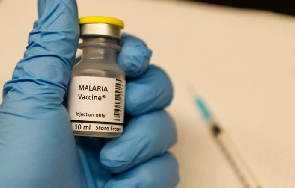The Chairman of the Public Interest and Accountability Committee (PIAC), Dr. Steve Manteaw, has accused the New Patriotic Party Government of employing obscurantist tactics in a 2017 oil deal with American multinational oil and gas corporation, ExxonMobil.
At a recent forum in Accra, he pointed out that the sole sourced contract was deliberately stonewalled from the public with the Government attempting to use a flimsy excuse to explain away the shadiness around that deal.
“In October, 2017 the government served notice of entering into direct negotiation with ExxonMobil despite the requirement in the new Petroleum law for an open, competitive bidding process. The government’s justification was that, the negotiations had begun in 2015 under the previous government, and prior to the passage of the E&P Act of 2016. This position is however, not supported by the chronology of events,” Dr. Manteaw said.
Though on April 30, 2015, the predecessor Mahama government, indeed signed a Memorandum of Understanding (MoU) with ExxonMobil in respect of an oil Block at the Cape Three Point, he said, the MoU had committed the parties to negotiate an agreement over a period of seven months (Exclusivity Period).
“The negotiations run into difficulties and so the MoU expired on 30th November without an agreement,” Dr. Manteaw said.
He continued that when the Akufo-Addo Government came into office in 2017, it started a brand new negotiation rather than continue from a position of strength that the previous Administration had left off.
Interestingly, the new Government advertised that rather than opening up competitive bidding as required by the new Petroleum Law, the Government was entering into direct negotiation with the Americans in respect of the oil block ExxonMobil is now operating in the West Cape Three Point, a choice that vandalized Ghana’s laws on contract.
The direct negotiation created room for ExxonMobil to call the shots, including demanding that the Bank of Ghana be excluded from the process of negotiation, which was granted ton it on a silver platter. Dr. Manteaw lamented that other demands by Exxon which the Mahama Government had refused to grant, have been granted by the Akufo-Addo Government
As the Government’s approach clearly breached Ghana’s laws on contract, observers including PIAC raised issues with the process. It was in response to this that the Akufo-Addo Government resorted to the monkey business of blaming its breach of the law on its predecessor Government.
According to the Government, it had resorted to a sole-source of ExxonMobil because the negotiation had already been started by the previous Government. Consequently, it claimed that the negotiation with Exxon Mobil, therefore, predates the new Petroleum law which was enacted in 2016.
Conveniently, the Government ignored the fact that the ExxonMobil’s negotiation with the Mahama Government had been discontinued, even though it had been started in 2015.
“The suggestion by the government therefore, that the negotiations with ExxonMobil predates the 2016 petroleum law, as a justification for not auctioning the block in question, is therefore untenable, against the backdrop that, the MoU governing the 2015 negotiations had lapsed.
“It is therefore obvious that the government by its approach had avoided being caught by the default position of the law,” Dr. Steve Manteaw said.
He also dismissed the Government’s justification of the opaque and questionable sole-source of ExxonMobil on grounds that Exxon has the experience, expertise and financial muscle to execute the contract.
“The published notice of intent touted the expertise, track record, technological acumen, financial capacity of ExxonMobil, but these do not necessarily suggest that Ghana will get the best offer from the company – it is only when they are pitch against similar size companies such as BP, Shell, Chinese oil giants with similar capacity to work in ultra-deep waters that the process will yield competitive value.
“The opacity around the contracting process (got a copy through trusted sources) and the granting of Exxon’s wish to exclude Bank of Ghana from the process, led to Exxon obtaining terms that the previous government had refused to grant as it would have amounted to loss of revenue to the state.”
A disturbing revelation from the Ghanaian Parliament on the dubious renegotiation of the Norwegian AKER/AGM deal shows that that not all parliamentarians were given the chance to scrutinise the proposal that ensured Ghana’s state in the estimated US$ 10 billion South Deepwater Tano (SDWT) oil bloc was reduced from 48 per cent to 18 per cent.
According to the Parliamentarian from the South Tongu Constituency, Samuel Okudzeto Ablakwah, the renegotiation agreement forwarded to Parliament from the Akufo-Addo cabinet was not printed for the entire 275 parliamentarians to adequately scrutinise as the process was rushed through for approval.
Mr Okudzeto, revealed this curious insight on the sideline of Tuesday (May 7, 2019)’s explosive public forum at the Holiday Inn Hotel, where renowned energy experts revealed the level of official complicity involved in robbing Ghana of its latest lucrative oil bloc.
The revelation also reinforces expert criticisms that the Akufo-Addo administration was complicit in sponsoring a deal that has deprived Ghana the full benefit of one of its biggest oilfields.
The Akufo-Addo cabinet has raised eyebrows pushing through for the renegotiation on a closed Petroleum agreement that it had explicitly stated that it cannot renegotiate because any form of renegotiation would require an entirely new bidding process for that particular petroleum agreement.
On June 26, 2018, Mr Agyarko wrote in his reply to AGM which has requested a renegotiation of the agreement on behalf of the AKER/AGM group saying: “… it is not in the best interest of Government to renegotiate the terms of a closed Petroleum Agreement… We are therefore not in the position to accept your request for a review of the terms of the AGM Petroleum Agreement.” Mr Agyarko quoted portions of Ghana’s Petroleum Act to re-emphasis the government’s rationale for saying the deal cannot be renegotiated.
Not long afterwards, Boakye Agyarko was given the boot and Peter Amewu was appointed to replace him. Barely a year into his new appointment, Peter Amewu and the Akufo-Addo Cabinet suddenly decided they were going to accept AKER/AGM’s hitherto rejected renegotiation bid.
The process was rushed to Parliament, with the Ghanaian Parliament forced to reconvene from their recess on April 29, 2019. By May 3, 2019, a controversial petroleum agreement of that nature which experts say should take a least six months to scrutinise, was approved.
The old agreement had Ghana National Petroleum Company (GNPC) and its subsidiary state exploratory company Explorco having a combined interest of approximately 49 percent of the close to 1 billion barrel SDWT. By the time the Ghanaian Parliament endorsed the proposals of AKER/AGM to renegotiate the controversial agreement Explorco has been taken off the equation to be replaced solely by private company AGM. Additionally, Ghana’s stakes in the oil field had dropped significantly to 18 per cent.
A former Chief Executive Officer of GNPC, Alex Mould has described the whole antics of Parliament as illegality. Here again, Energy expert, Steve Manteaw, has questioned the rationale for rushing a deal that only gave the country the lowest possible benefit.
“In contracting, I know each party seeks the best for the constituency they represent, however it does appear to me that, our current leadership is in an indecent haste to sell our hydrocarbon resources, not to the highest bidder, but rather, to the lowest,” he questioned during the public forum.
Interestingly, with the new agreement comes a new local partner who wasn’t part of the old agreement. This local partner called Quad Energy only officially registered its operations on April 10, 2019 in sync with the call for the controversial renegotiation.
Other media reports have revealed that the owners of Quad Energy have strong links to the Finance Minister, Ken Ofori-Atta, as one of the Partners, Joseph Babatunde Ampah, was a Vice President of Databank Limited, an investment brokerage firm owned by Finance Minister.
The Other partner of Quad Energy, one David Adomako is also a board member of AKER Energy. Adomako was forced to issue a statement seeking to explain away the curious emergence of his company. According to him, he is the only shareholder of Quad Energy, and that he had only invited Babatunde who is his nephew to assist in him registering the company.
Yet, copies of official registration documents from the Registrar General’s department revealed that Mr Babatunde Ampah is an equal shareholder of Quad Energy.
Business News of Thursday, 16 May 2019
Source: theheraldghana.com













